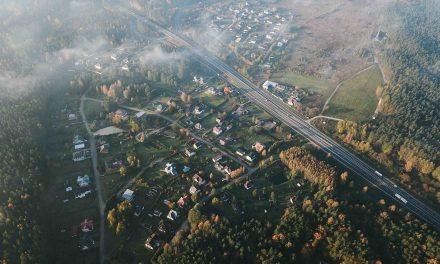With the promulgation of Law Number 11 of 2020 on Job Creation (“Job Creation Law“), the government of the Republic of Indonesia has changed the several regulations including in the field of agrarian and spatial planning. The government has enacted several implementing regulations from UUCK, including PP 20 of 2021 on Order of Abandoned Areas and Lands (“PP 20/2021“).
Land right or right of management () is given to right holders to be properly cultivated, used and utilized and maintained to the welfare of the right holders. In addition, it must also be aimed at the welfare of the community, nation, and state. Therefore, a person or legal entity that has obtained foundation to control a land is obliged to maintain it, cultivate it properly, not abandon it and filing an application to obtain land right, there are legal consequences that is the removal of land right and termination of legal relation. Even though the person or legal entity has not received Land Right, if the land is abandoned, the legal relationship concerned with the land will be removed and confirmed as land directly controlled by the state. In order to control abandoned land, the government of the Republic of Indonesia has made several efforts including making regulations on order of abandoned land.
In practice, there are quite a number of land right holders who do not use or cultivate their land in accordance with the decree granting land rights, so that the government needs to carry out order over abandoned land.
To organize the abandoned land, the government of the Republic of Indonesia has made several efforts including making regulations on the order of abandoned land which was first regulated under the Government Regulation Number 36 of 1998 on Issuance and Utilization of Abandoned Land, which was subsequently replaced by PP No. 11. Year 2010 on Control and Utilization of Abandoned Land (“PP 11/2010“).
Along with the change in the field, apart from abandoned land, currently there are also many abandoned areas where land rights have not been attached but are deliberately not cultivated, not used and/or not utilized. Article 180 of the Job Creation Law regulates those rights, permits or concessions on land and/or areas that are deliberately not cultivated or abandoned within a period of 2 (two) years since they were granted are revoked and returned to the State.
Therefore, the government issued PP 20/2021 to replace the provisions of PP 11/2010 which were deemed no longer relevant to developments in conditions occurred in the field.
Object of Order
PP 20/2021 changes the object of order from what was previously regulated in PP 11/2010. Previously the object of order was only the abandoned land that had been granted rights by the State which is not cultivated, not used, or not used in accordance with the circumstances or the nature and purpose of granting rights or the basis for control. Meanwhile, in PP 20/2021, the object of order is expanded to become the object of organizing the abandoned areas and abandoned land. The object of order over abandoned areas is non-forest areas where land rights have not been attached with a license/concession/business permit (“Permit”) which is deliberately not cultivated, not used, and/or not utilized. Meanwhile, the object for of order over abandoned land is land that has been registered or has not been registered which is deliberately not exploited, not used, not utilized, and/or not maintained.
The criteria for abandoned land based on Government Regulation 20/2021 are (i) ownership right that is not used and/or not maintained and controlled by the society and become a village area, controlled by other parties continuously for 20 (twenty) years without any legal relationship with rightsholders, or the social function of land right is not fulfilled, whether the rightsholder is still there or no longer exist; (ii) rights to build, right of use , and right of management that are deliberately not exploited, not used, not utilized, and/or not maintained, commencing 2 (two) years from the issuance of such right; (iii) right to cultivate land that is deliberately not cultivated, not used, and/or not utilized, commencing 2 (two) years from the issuance of such right; and (iv) Land acquired on the basis of basic tenure of land which is deliberately not cultivated, not used, not utilized, and/or not maintained commencing 2 (two) years from the issuance of the basic tenure of land.
Right of management land that is exempted from the object of order of abandoned land includes: (i) right of management land for customary communities; and (ii) right of management land which becomes the assets of land bank body.
Inventory of the Indicated Abandoned Areas and Lands
There are differences regarding the authority to inventory indicated abandoned areas and lands, for areas indicated as abandoned, the authority to carry out an inventory rests with the head of state agencies, ministries, non-ministerial government agencies, provincial local governments, or district/city governments (“Agencies”) that issue the permits. Meanwhile, the lands indicated as abandoned is carried out by the land office.
The inventory of indicated abandoned areas which permits were issued before the promulgation of PP 20/2021 has been carried out since the promulgation of PP 20/2021. Meanwhile, the area which license is issued after the enactment of PP 20/20212 is (two) years since the issuance of the permit.
The inventory is carried out based on reports or information that come from license holders, government agencies, and/or the public. However, if within 90 days the head of the agency does not carry out an inventory, then the inventory is carried out by the Minister of Agrarian Affairs and Spatial Planning (“Minister of ATR”).
For an inventory of indicated abandoned lands, it is carried out by the land office after 2 (two) years from the issuance of rights, based on reports or information from: (i) rightsholders; (ii) the results of monitoring and evaluation of land rights and basic tenure of land conducted by the land office, regional offices, and the Ministry of ATR; (iii) ministries/agencies; (iv) local government; and/or (v) the public.
Order of Abandoned Area and Abandoned Land
The steps taken to organize abandoned areas and lands are: (i) evaluation of abandoned areas and lands; (ii) warning of abandoned areas and lands; and (iii) determination of abandoned areas and lands.
The evaluation of abandoned areas is carried out by a working group formed and stipulated by the head of the agency issuing a license which is carried out within 180 days. In the event that based on the results of the evaluation it is known that the license holder deliberately does not exploit, does not use, and/or does not utilize the license and/or the area under control, the head of the agency shall notify the permit holder to cultivate, use, and/or utilize the license and/or the area controlled within a no longer than 180 (one hundred and eighty) calendar days from the date of issuance of the notification.
If until the end of the notification period, the permit holder still does not attempt, does not use, and/or does not utilize the permit and/or the area under control, a warning letter will be issued.
The warning is made in writing so that the permit holder cultivates, uses, and/or utilizes the permit and/or the area under control and is given three times. The period of time for the license holder to cultivate, use, and/or utilize the permit and/or the area controlled in the respective warning letters is 180 days, 90 days, and 45 days. If until the third warning letter they still do not carry out the request in the warning letter, the head of the agency will designate the area as an abandoned area.
The evaluation of abandoned land is carried out by a committee appointed by the head of the regional office of the Ministry of ATR. In the event that based on the results of the evaluation it is known that the rightsholder intentionally does not exploit, does not use, does not utilize, and/or does not maintain the land that is owned or controlled, the head of the regional office shall convey a notification to the rightsholder to work, use, utilize, and/ot maintanin the owned or controlled land within 180 (one hundred and eighty) calendar days from the date of issuance of the notification.
If until the end of the notification period, rightsholder do not exploit, do not use, and / or do not utilize the land under control, a warning letter will be issued.
The warning is made in writing so that the rightsholder will try to exploit, use, utilize and/or maintain the land that is controlled and given three times. The period of time for rightsholders cultivate, use, utilize and / or maintain their land is 90 days, 45 days, and 30 days. If until the third warning still does not carry out the request in the warning letter, then the head of the regional office within a period of 30 (thirty) working days proposes the determination of abandoned land to the Minister of ATR.
The Result of the Determination of the Abandoned Area and Land
By stipulating an area as an abandoned area, the designation can also include (i) revocation of license and/or (ii) affirmation as an area directly controlled by the State. Whereas for abandoned land, the designation of abandoned land results in (i) the elimination of land rights or management rights, (ii) legal relations breaking up, and (iii) assertion as state land as abandoned land which is directly controlled by the state if it is designated as abandoned land. Only part of the stretch, it can also contain orders to revise the extent of land rights.
The provisions of PP 20/2021 have clearly given an expansion of authority to the State to take over abandoned lands, which previously were limited to abandoned land, now expanded to include abandoned areas.
This is clearly a progress where the holders of business Permit or land rightsholders cannot simply apply for a business Permit or land rights without carrying out activities on the land.
Ghazi Luthfi









